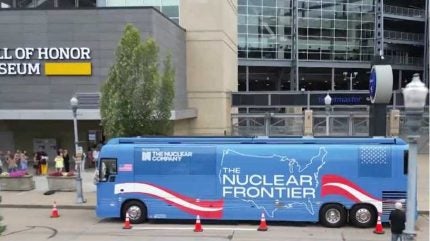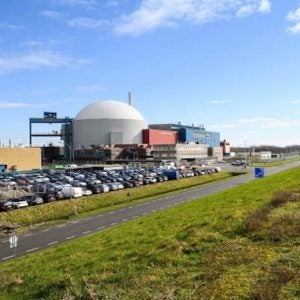
The Nuclear Company, a US start-up, says the biggest challenge to bringing new US nuclear power online is that one-off projects almost always exceed their budget and timelines. The Nuclear Company is committed to fleet-scale nuclear power. Its design-once, build-many approach uses a proven design to deliver safe and reliable electricity at the lowest cost. “While others are betting on unproven design and engineering, we’re focused on approved and licensed technology already operating in the United States,” it notes.
“Individual utilities typically will not assume the risks associated with large nuclear power construction. That’s why we’re building coalitions across communities, regulators, and financial stakeholders, catalysing the nuclear industry toward rapid development in America and globally. Our consortium of utilities and independent power producers, hyperscalers, nuclear technology suppliers, and private equity help us mitigate risk and make nuclear power an attractive investment.”
The company says it is developing standardised processes and scheduling “so that we can sequence our work to minimize delays. By moving construction expertise from one site to the next immediately, we will improve efficiency”.
Nuclear’s 92% capacity factor means plants operate day and night, providing the reliable, around-the-clock power. “Other forms of renewables are important, but they can’t get us there alone. We have the blueprint, and we need to use it.”
Referring to the much delayed Vogtle NPP units 3&4, the company notes: “America just completed construction of two nuclear reactors. We must use our know-how or other countries will surpass us….With 56 reactors operating and 27 more under construction, China’s nuclear expansion is set to eclipse the United States by 2030. China will reach 200 gigawatts, double that of the United States’ current nuclear capacity, within 15 years. China plans to nearly triple its nuclear capacity by 2035.”
By contrast, the US has zero reactors under construction. “The country’s 94 operating nuclear reactors date largely to the 1960s and 1970s. With no commercial reactors currently under construction, the US risks losing its prominence in setting global industry standards.”
The company is taking direct action using a campaign bus targeting key cities. “Join us as we mobilise public support for the development of 200 gigawatts of new large-scale nuclear power across America.” Building nuclear power “is a matter of national security, as increasing our nuclear fleet ensures our continued global economic leadership.”
The Nuclear Frontier bus is visiting six states and Washington DC this summer “to build support for new nuclear in America”. Key destinations include Pittsburgh (Pennsylvania) Richmond (Virginia) Lexington (Kentucky) Charlotte (North Carolina) Knoxville (Tennessee), Atlanta (Georgia), and Washington DC.
“Our unique approach integrates proven technology with unparalleled collaboration among diverse organisations, ensuring that fleet-scale projects are executed on-time and on-budget,” said Chief Development Officer Juliann Edwards. “The time is now, given a sea change in public opinion that’s overwhelmingly supportive of nuclear power, recent bipartisan legislative action, and our business model that drives down upfront costs.”
Early investors in the company include investment firm CIV, True Ventures, Wonder Ventures, Goldcrest Capital, and MCJ Collective.






